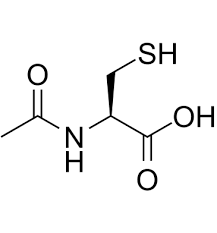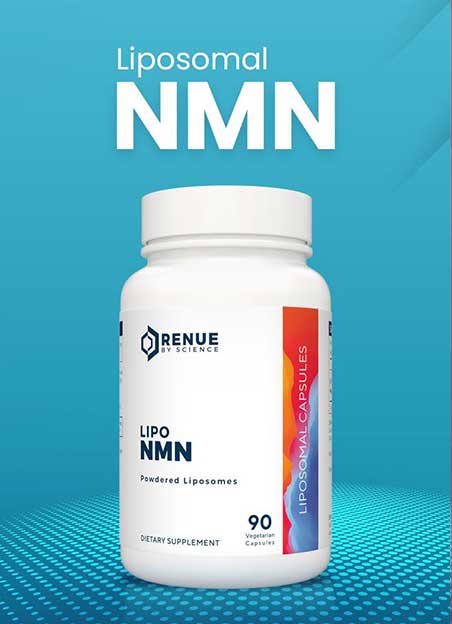N-acetyl cysteine (NAC) is an FDA-approved drug that comes from L-cysteine amino acids. Amino acids can be thought of as the building blocks of proteins.
The chemical formula of this amino acid is given below:

Chemical Formula of NAC
L-cysteine amino acid is considered a semi-essential amino acid because it can easily be produced in our bodies with the help of two other amino acids: serine and methionine. When the production of these two amino acids is low in the body, only then L-cysteine amino acid become essential.
The supplemental form of L-cysteine amino acid is called N-acetyl cysteine.
It is important to ensure that your NAC intake is up to the mark because of a range of health reasons. NAC helps the body in absorbing glutathione which is one of the most powerful antioxidants. NAC also helps with brain health, fertility, and respiratory conditions.
Food Sources for L-cysteine

Picture by Lukas at Pexels
Cysteine is found in a range of food sources. Some of them are given as follows:
- Legumes
- Sunflower seeds
- Eggs
- Cheese
- Yogurt
- Turkey
- Chicken
All these food sources contain cysteine amino acids including L-cysteine from which NAC supplements can be made. Consumption of these foods also increases the levels of amino acids in the body.
Benefits of NAC

NAC is an important part of a range of bodily processes. It helps the body in producing important substances like antioxidants and regulating other substances.
Some of the most important benefits of NAC are discussed as follows.
Antioxidant Production
One of the most prominent functions of NAC in the human body is the production of a powerful antioxidant called glutathione.
In order to produce glutathione, NAC works with two other amino acids: glycine and glutamine.
The main function of glutathione is to regulate the number of free radicals present in the body by neutralizing the extra free radicals to save tissues and cells from damage. Some studies have indicated that glutathione may be related to longevity as well.
Other than that, since glutathione is a strong antioxidant, researchers believe that its properties are also important for sustaining various environments and functions within the body such as mental health conditions, fertility, and cardiovascular health.
Detoxification and Protection from Liver and Kidney Damage
NAC is also a vital part of the detoxification processes of the body.
It helps prevents the potential side effects of environmental toxins and drugs.
Many a time, doctors give NAC to patients in case of an overdose of acetaminophen. NAC is given intravenously in order to quickly save liver and kidney from damage.
Since NAC has the potential for strong anti-inflammatory and antioxidant properties, it also provides assistance in treating several other liver diseases.
Substance Abuse and Mental Health Benefits
One of the most vital neurotransmitters in the brain is glutamate. NAC plays an important part in regulating that neurotransmitter.
An excess of glutamate would be drastically dangerous for the brain. Combined with glutathione, it can even result in brain damage. That is why regulating it is such an important task, a task fulfilled by NAC.
If glutamate regulation isn’t effective, it may lead to substance use disorder, obsessive-compulsive disorder (OCD), schizophrenia, and bipolar disorder.
A meta-analysis and systematic review by Brisa S Fernandes and her team found out that for people suffering from both depression and bipolar disorder, NAC can help alleviate the severe symptoms significantly and help the patients become more functional in their daily lives.
Furthermore, a double-blind and placebo-controlled study by K Paydary and their team found out that NAC also successfully helps treat severe and moderate OCD. A total of 44 participated in this study where 22 were placed in the placebo group and 22 were placed in the control group. The control group received 200 mg of fluvoxamine daily.
The study concluded that NAC helped in treating severe and moderate OCD.
NAC also helped relieve the negative impact of schizophrenia, according to a 2016 study by B Posfai and their team. NAC helped minimize effects such as shorter attention span, apathy, and social withdrawal.
NAC supplements are also effective in helping people with cocaine addiction by helping them manage their withdrawal symptoms. It also helps significantly in preventing a relapse for people suffering from cocaine addiction.

Picture by Lilartsy on Pexels
Some studies have also shown that NAC can be helpful in managing the cravings for nicotine and marijuana use.
All the conditions mentioned above have very limited treatment options. NAC might help fight these diseases more effectively.
It must be noted here that the studies cited above are a few years older. It is important to conduct more research in the area to explore the NAC-based treatment options for people struggling with addictions, substance abuse, and other mental health conditions. The potential for NAC seems to be an effective treatment option seems great.
Chronic Obstructive Pulmonary Disease (COPD)
NAC has the ability to help patients suffering from a range of respiratory ailments through two roles: expectorant and antioxidant. It helps clear the passageways for breathing by loosening the mucus.
NAC, while working as an antioxidant, replenishes the lungs with the desired levels of glutathione. It also decreases the inflammation that may be present in the lung tissue or bronchial tubes.
Patients who are suffering from a respiratory ailment known as chronic obstructive pulmonary disease (COPD) experience inflammation in their lung tissues and chronic oxidative damage. These issues result in coughing and shortness of breath.
NAC is seen as vastly effective in dealing with COPD symptoms. It helps in healing the lung decline while also lowering exacerbations.

Picture by Towfiqu barbhuiya on Unsplash
A study by Elham Pirabbasi and their team studied the effect of NAC supplements on COPD patients. The study concluded that a single supplementation of NAC improved the antioxidant and nutritional status of the patients involved in the study.
A review of articles also found that the use of NAC in managing COPD generated positive results, especially for patients with declining lung function. NAC supplements reduced the rate of lung function decline significantly in the studies examined in the review.
Similar findings were presented in a larger systematic review exploring the impact of NAC supplementation on COPD management.
An article by Claudio M. Sanguinetti conducted trials where 600 mg doses of NAC were given to patients with COPD. The study found significant improvement in the lung function of those taking NAC. It also found out that if taken in higher doses, NAC can be vitally more effective than the lower doses in managing COPD.
Bronchitis
Apart from COPD, there is a lot of evidence that shows that NAC also helps people with bronchitis.
In bronchitis, the bronchial passageways to your lungs are shut because of swelling and inflammation caused by the mucous membranes in those passageways.
NAC has proven to reduce the symptoms of bronchitis significantly by ensuring the glutathione levels are up to par and mucus in the bronchial tubes is thinned. It helps reduce both the frequency and the severity of respiratory attacks, coughing, and wheezing.
It must be noted here that bronchitis and COPD are not the only respiratory and lung ailments. It also helps with pulmonary fibrosis, asthma, and cystic fibrosis. It also reduces the symptoms of sinus and nasal congestion occurring because of infections and allergies.
Fertility Benefits
Fertility is a big issue for a large number of people around the world. It is a barrier for around 15 percent of total couples trying to conceive. Male infertility accounts for around half of those cases.
One of the main drivers behind male infertility is the lack of antioxidants letting free radicals cause oxidative stress which results in reduced fertility and cell death.
There is some evidence that NAC can help fight the issues related to male infertility, especially those caused by the lack of antioxidants in the reproductive system.
When free radicals are left unchecked, they form varicocele inside the veins of the scrotum and become enlarged in size. While surgery is considered the traditional and permanent solution, NAC is used after surgery to keep free radicals in check.
A study gave men 600 mg of NAC every day after their surgery for varicocele for 3 months. As a result, the integrity of semen greatly improved while posting a 22 percent increase in partner pregnancy.
Several other studies have shown evidence that NAC helps with male fertility.
Frequently Asked Questions
Following is a list of the most frequently asked questions about NAC.
1. Is NAC safe for consumption?
Since NAC is an FDA-approved drug, it is safe to say that it is safe for consumption.
2. How much NAC should I take?
You should probably consult with your doctor before taking it. Due to the low bioavailability of oral supplements of NAC, it is recommended that you take anywhere between 600 to 1800 mg of NAC per day.
3. Are there any side effects of taking NAC?
NAC is a safe medicine with little to no side effects when taken in conjunction with your doctor. Common side effects when taken in high doses include the following:
- Chest tightness
- Drowsiness
- Runny nose
- Swelling in the mouth
For those taking blood-thinning medications or with bleeding disorders, it is best to avoid NAC because it may interfere with blood clotting.






